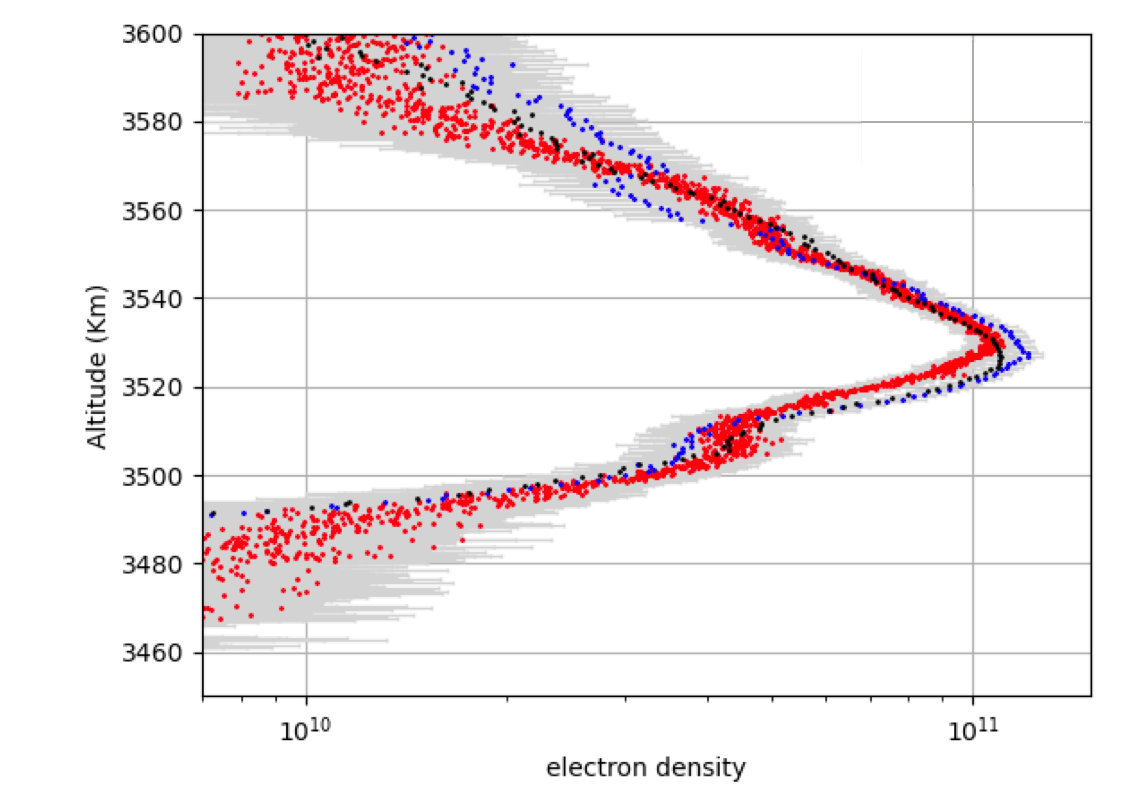- 1Royal Observatory of Belgium, Brussels, Belgium (ozgur.karatekin@oma.be)
- 2Earth and Life Institute, UCLouvain, 1348 Louvain-la-Neuve, Belgium
- 3MAUCA — Master of Astrophysics, Université Côte d'Azur, Parc Valrose, 06100 Nice, France
- 4European Space Agency, Noordwijk, The Netherlands
ESA’s Mars Express spacecraft has been exploring the red planet since January 2004. The spacecraft is able to receive and transmit signals at both S-band and X-band. Changes in the radio signals properties while propagating through the atmosphere yield information on the electron density profile. The Mars’ ionosphere is very variable in time. One source of its variability is the solar activity. Here we study the effect of solar flares and coronal mass ejections on the Mars’ ionosphere using the publicly available Mars Express radio occultation data. A new software in python was developed to process the residual frequencies data sets, and was validated using higher-level archival data. We calculate the electron density profiles before, during, and after such solar events. The variations in ionospheric parameters (total electron content, peak density and altitude) are quantified in order to understand the ionospheric changes due to solar activity. As expected, significant variations in these parameters have been identified. The results are compared with additional measurements and models.

Figure 1: Electron density profiles observed by MEX on 2011 during 2 days following a solar event.
How to cite: Karatekin, Ö., Krishnan, A., Ebrahimkutty, N., Henry, G., El Fadhel, A., and Witasse, O.: Analysis of selected Solar events with Mars Express radio occultation data, Europlanet Science Congress 2021, online, 13–24 Sep 2021, EPSC2021-562, https://doi.org/10.5194/epsc2021-562, 2021.

